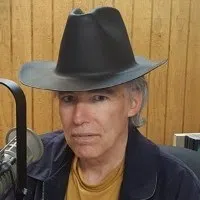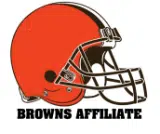This year in college sports looked unlike any other, but don’t take your eye off the ball. This is still a system that runs on free labor.
As 2022 wraps up, SI staffers Jon Wertheim and Chris Almeida will discuss some of the themes of the year in sports. On Monday, they covered sportswashing. Today the topic is: what has (and hasn't) changed during a wild year in college sports.
Jon Wertheim: I have a rant: We're all obsessed with NIL deals, right? NIL has been this transformational force and it's been twinned with the transfer portal. It's completely changed college football in particular. The Notre Dame starting quarterback, before a bowl game, announces that he’s transferring and people shrug. Deion Sanders can arrive at campus and basically try to prevail upon 19 year-olds to switch schools. And that's completely normal. The fact that college athletes are essentially free agents is now something we've essentially taken for granted. We've done away with this unfairness where Lincoln Riley can leave Oklahoma or Brian Kelly can leave Notre Dame and players have to sit out if they want to do the same thing. And now we have this transfer portal where recruiting isn’t just finding high school juniors and seniors but also finding the unhappy kid at Wisconsin and hoping he comes to Indiana. I mean, The Washington quarterback used to play for Indiana. This is the new rules of engagement.
And it's great that a select few athletes can make money through these NIL deals and as anticipated, they're really not NIL deals, they’re just payments—we used to think, before NIL, that these athletes would be doing commercials at a local car dealer. But with the exception of some social media work, it's not as though these recipients of NIL money are spending huge amounts of time doing commercial shoots and sitting on billboards. What we're missing though with all of these discussions is that this still doesn't address the fact that this is all thriving on unpaid labor.
These athletic departments are gonna do a quarter of a billion dollars in revenue. And this Big 10 football deal is gonna be worth more than the NBAs contract was worth at the turn of the century. There's still all this money sloshing around college athletic departments. And the athletes aren't getting any of it. It's like Sports Illustrated saying “We're we're not going to pay you to write stories but you can go get a book deal and we're not going to stop you.” So it's great for these athletes now have a way to make some revenue. It's great for these athletes now to be able to go into the marketplace so that their parents no longer have to worry about paying bus fare to go see them play. But all of this still doesn't address the issue that the business is generating more money than ever. These television contracts are more lucrative than ever. I mean, the Big 10 now sweeps from Southern California to New Jersey and has never been in a better position financially, and the labor still comes free. Yeah, we’re sort of taking our eye off the ball. These athletes aren’t making a salary from the revenue they generate. They have the right to get into these third parties. Great. That's a start. But the market is still deeply distorted.
Chris Almeida: So you think we've taken our eye off the ball the media? Or as fans?
JW: Both. I mean, I think the schools are breathing a sigh of relief. If you’re the Indiana athletic department, things are perfect. You can tap into the boosters, you can get these guys paid. If you're Kentucky basketball, this is awesome.
CA: So I'll push back a little bit. When I saw the news about Charlie Baker getting tapped to NCAA president in March. I thought: why would he do this? Here’s this guy coming off a pretty uncontroversial term as Governor of Massachusetts. He’s in his 60s. Presumably he’s doing pretty well financially. And so I saw that news and wondered why the hell he would take that job. Because yeah, the NCAA has a lot of power and influence right now. College football is huge, but as much as it feels like NIL has bought them a little bit of time, it does feel like it’s only buying time. The number of supposed principles that the NCAA has given up on in the last few years does make it seem like change is inevitable and coming fast. And so there’s no reason, I don’t think, to believe that the change is over. So if I’m the NCAA, I don’t think I’m feeling comfortable. I think I’m counting the days until the whole house of cards collapses. And why would you want to be the captain of that ship?
JW: What does the collapse look like, though? I think if you’re Charlie Baker, you obviously don’t want to be the CEO of the coal mining company. But college sports is thriving more than ever. Maybe the NCAA’s role in them is diminishing. But there's still some entity there. Business is booming, and someone's got to synthesize it. I mean, I feel like as long as college sports occupies the place that it does—and there's no indication that's gonna go down anytime soon—why wouldn't you try to play hero ball and say: Yes, I'm the one that's going to finally make sure there's there's cohesion. Why wouldn’t you want to be the guy who finally starts paying athletes. Somebody’s got to string all of this together.
CA: That's fair. And maybe I'm thinking about this in a too-small way. But I think of Mark Emmert’s role or Charlie Baker's role as basically selling the antiquated college sports product and not a modernization of that product. And maybe the leadership change is a sign that they're going to go a different direction and they're going to lean all the way into the NCAA as a business and a major league. Perhaps that will work. But! I haven't seen any strong indication that they're going to go in that direction, where they’ll fully admit that what they’re selling is conceptually very different than the old idea of students just doing their hobby in front of a bunch of fans. I’m not sure that the NCAA is willing to fully take the mask off yet.
But I believe that’s eventually going to be a necessity. College football… it's basically going to be pro football. You're gonna have two conferences with 16 teams…
JW: On the one hand, we're talking about the Fox conference versus the ESPN conference and Kevin Warren and billions of dollars and why UCLA would switch from the PAC 12 to the BIG 10. Well, it's because of all the revenue and the athletes still aren't being paid by this revenue. And as long as that’s the case, there will still be a ways to go. Yeah, it’s great that Caleb Williams doesn’t have to worry about flying his parents out to see him play and it's great that there's gymnasts that can become internet stars and monetize that. But it kind of doesn't change that it’s all kind of fool's gold because it doesn't address this fundamental issue that people generating value are not being paid.
Anyway, I feel like we're all caught up on the portal. But we still haven't addressed the elephant in the room.


















